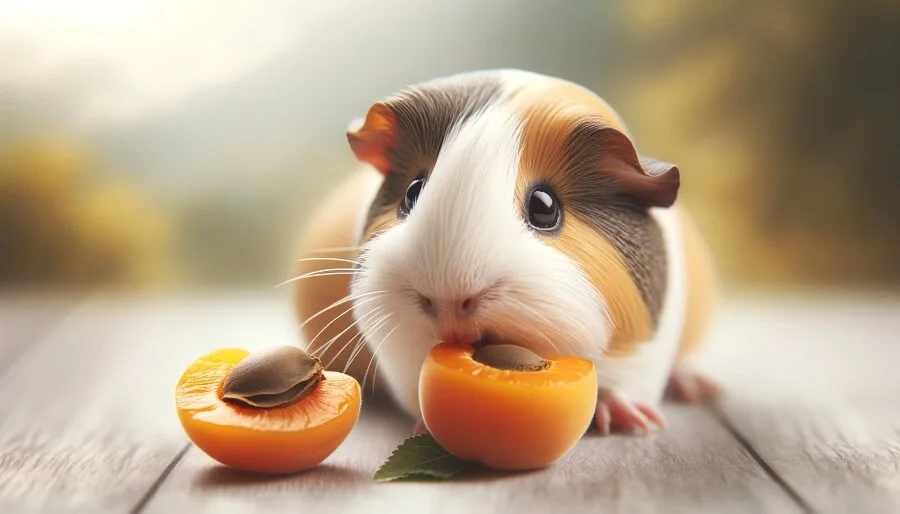Answer: Yes
Reason for Safety/Concern
Apricots are safe for guinea pigs when the stone (pit) is removed, as it can be toxic. They are a good source of Vitamin C and other nutrients but are also high in sugar. Therefore, they should be fed in moderation to avoid health issues like obesity and diabetes.
Serving Guidelines
- Amount: 1–2 small pieces (about 10g, stone removed)
- Frequency: Once a week at most
Preparation Tips
- Wash the apricot thoroughly to remove any pesticides or chemicals.
- Ensure to remove the stone as it can be toxic and a choking hazard.
- Cut the apricot into small, manageable pieces to prevent choking.
Nutritional Facts [per 10g of apricot without the stone]
- Calories: 4.8 kcal
- Protein: 0.14 g
- Fat: 0.04 g
- Fiber: 0.6 g
- Vitamin C: 1.2 mg
- Sugar: 0.96 g
Signs to Watch For
- Diarrhea or loose stools
- Lack of appetite or reduced water intake
- Any unusual behavior or signs of discomfort
Additional Notes
- Introduce apricots slowly into your guinea pig’s diet to monitor for any allergic reactions or digestive issues.
- Due to their sugar content, apricots should be given as an occasional treat, not as a regular part of the diet.
- Always remove the stone to prevent any risk of toxicity or choking.
Additional Resources
- For more nutritional facts visit Diet & Nutrition.
- For a full list of what guinea pigs can and can not eat visit List of Safe & Unsafe Foods for Guinea Pigs.

